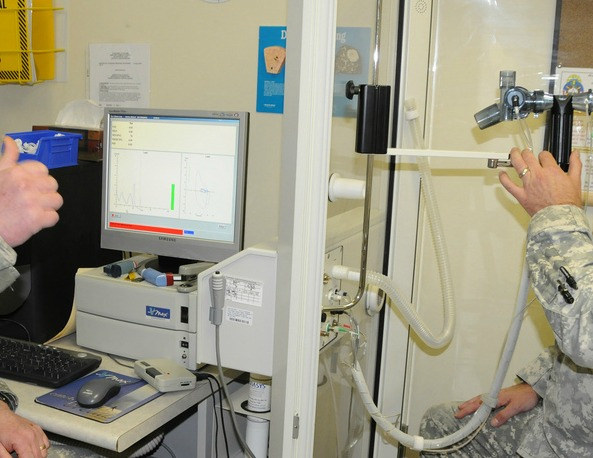
Is It a Refusal if I’m Unable to Blow in the Breathalyzer?
Being physically unable perform a breath test while under suspicion of operating a vehicle while intoxicated (OVI) can stand as a positive defense against an OVI refusal charge.
Stripping out the legalese, a judge can find you not guilty of refusing to do a Breathalyzer if you and your Delaware, Ohio, OVI lawyer can show that you were too ill, injured or incapacitated to produce an adequate breath sample. This may allow for avoiding the increased penalties involved with a conviction for refusing a breathalyzer when you have a prior OVI offense within a certain period of time.
This also matters because refusing to participate in breath testing designed to measure your blood alcohol concentration (BAC) for driving under the influence can result in a one-year driver’s license suspension that also applies to any commercial driving certifications you hold. That suspension comes with a complete ban (no privileges) on all legal driving for at least 30 days. Subsequent BAC test-refusal convictions bring longer license suspensions and the likely requirements to display specially designed OVI offender plates and to install an ignition interlock device, which is otherwise known as a car breathalyzer.
Different Types of Breath Testing Follow Different Rules
Ohio courts do not recognize BAC breath test results as valid unless the breath samples are taken by a state certified person using a state certified and properly calibrated machine. This means that you can refuse, a request to blow into a handheld BAC device during a traffic stop without penalty. Agreeing to a breath test before being taken into custody can work to your disadvantage because police officers are allowed to use a portable BAC reading of .08 or higher as evidence of intoxication that supports an arrest and further testing.
Once you arrive at a BAC testing facility, you can refuse to blow into a Breathalyzer or consent. If you already have two OVI convictions on your record, an officer can use “reasonable force” to collect samples. The arresting officer may also secure a warrant that compels you to cooperate with sobriety test requests. A warrant is now required to force a blood test if you refuse to submit to the test.
A Refusal Charge Brings Immediate Unwelcome Consequences
As a suspected drunk driver, you could be unable to breath out into a testing device with enough force or for enough time to register a valid BAC reading for any number of reasons. Injuries from a car crash, chronic lung disease, recent surgery, medication use and even drowsiness can leave you incapable of adequately performing a breath test. Even if you explain your situation to the officer overseeing the test, he or she can interpret inadequate performance as willful noncompliance.
When that happens the officer can pace you under an administrative license suspension, or ALS. Ohio statutes authorize law enforcement officials to seize and suspend an OVI suspect’s driver’s license for any of the following reasons:
- Failing a BAC test
- Having repeated drunk or drugged driving convictions and appearing impaired
- Refusing to provide blood, breath, and urine samples for alcohol and drug testing
- Trying to cheat a Breathalyzer by blowing weakly
An ALS should be appealed at your first appearance before a judge. If it is not contested within 30 days of its application, it will remain in effect for its entire original term (anywhere from 90 days to multiple years). Working with a Delaware, OH, DUI attorney to present evidence that you were medically or physically incapable of doing a breath test can convince a judge or, in case of a CDL suspension, the Bureau of Motor Vehicles hearing officer to lift the ALS and restore driving privileges.
If you need a DUI/OVI defense lawyer in Delaware Ohio or in Columbus Ohio, contact a Columbus OVI defense lawyer at The Maher Law Firm. We offer no-cost, no-obligation consultations, and we take most cases for a flat fee. Call us at (614) 205-2208 or connect with us online by using the free consultation or contact us tabs on our website.
RECENT POSTS
-
What is Improperly Handling Firearms in a Motor Vehicle in Ohio?
07 Mar 2025
-
What is the Difference Between OVI and DUI in Ohio?
05 Mar 2025
-
What Happens When You File a Police Report on Someone For Harassment
11 Dec 2024
-
How to Move for Dismissal for OVI in Ohio
28 Oct 2024
-
Ohio Fraud Laws: Fraud Charges and Their Penalties in Ohio
12 Sep 2024
-
Can Dismissed OVI Be Expunged in Ohio?
02 Sep 2024
BLOG CATEGORIES
-
Criminal Defense
45 Posts
-
Traffic
126 Posts
-
Weapons
3 Posts
-
Drugs
22 Posts
-
DUI
195 Posts
-
Current Events
1 Posts
-
Expungements
2 Posts
-
News
18 Posts


